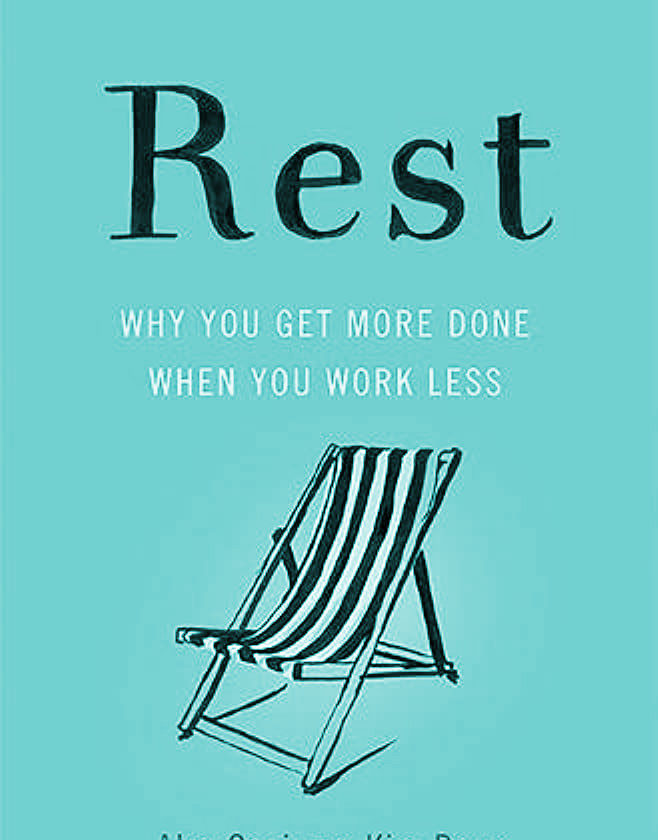Last year I read an interesting book called The Revenge of Analog: Real Things and Why They Matter, which is about a resurgence in analog technologies such as vinyl records and camera film that were once thought to be obsolescent. Many people have found that doing everything digitally isn’t all it’s cracked up to be, and analog solutions still have some nice advantages. One of those advantages is that analog solutions can give people a greater feeling of control of the experience.
A print book doesn’t interrupt you with notifications about a new book you might like. An analog camera doesn’t distract you with a text message while you’re trying to take a photo. If you review your goals on index cards instead of your computer, you won’t see stock updates while looking at your goals.
Is Software Interrupting You?
I’m very comfortable with technology since I was introduced to my first computer in 1981 and started learning to program that same year. I’ve been using email and the Internet since 1989, I know at least a dozen programming languages, and I’ve been generating income online since 1995. I have the latest iPhone, an Apple Watch, and plenty of other devices. I’ve been immersed in that world for decades.
I’ve notice an odd trend though.
When I was younger, I’d always run software according to my own timetable. I didn’t feel compelled to check on it at other times. That’s because the majority of software didn’t involve any communication or notifications. It just sat there on the hard drive or a floppy disk till you ran it. When you were done using a computer, you powered it down, and you only booted it back up again when you wanted to use it. Otherwise you’d be wasting electricity, or you might run the risk of permanently burning an image on your TV or monitor.
There was no multitasking, at least not on the human level. You ran one program at a time. When you wanted to do something in a different program, you had to quit the first one. Sometimes it would take a minute or more for one program to load if you had to run it from a floppy disk.
These days it often feels like software runs us. That’s because a lot of modern software has been designed to addict. Everyone competes for our scarce attention. Software conditions us with reward mechanisms such as an intermittent positive reinforcement schedule, or it blatantly calls us back with distracting notifications.
This relationship with software might make sense for truly urgent matters, but what’s truly urgent? We’ve lowered our standards for urgency in the past few decades. These days even a trivial message from a friend can yield an instant notification to come through, as if any random What’s up? message is now an emergency that requires our immediate attention.
What’s the cost of this low-quality urgency addiction? We can no longer concentrate effectively and do our Deep Work on just one thing for hours at a time. We spin our wheels and destroy our ability to create serious results.
Taking Back Control
You probably gave away control of your time in such a piecemeal fashion that you didn’t notice the slip until you were pretty far gone. Now it just seems normal to be that far gone. Your devices are dinging, buzzing, and flashing at you all day, every day, and you think that’s normal?
In a sensible world, most days you should receive zero digital notifications about anything because most days nothing truly urgent and important happens. So are you experiencing some of those days with zero notifications? If not, then turn off whatever is peppering you with daily distractions. In any other century, it would be deemed ridiculous to allow so many distractions to come at you.
One of the main problems with an overload of digital tech is that it begins to set the agenda for you after a while. You’re likely to suffer a loss of control. You feel pressured to keep up with trivialities. That’s going to drag down your self-esteem too. And it will surely drag down your ability to achieve anything worthwhile, which will in turn drag down your self-esteem even more.
The NF30 Challenge: Notification Free for 30 Days
Here’s my challenge for you:
Go through all your devices and turn off every automatic notification, alert, badge, and other digital interruption. Make sure your devices don’t ding, beep, flash, vibrate, or try to get your attention in any way based on some event.
This includes turning off automatic notifications for emails and text messages. You shouldn’t be able to tell if you got an email or text unless you deliberately go check.
Instagram notifications? Please. Like any of those even matter. Why would any intelligent person ever consider those to be worthwhile interruptions?
If you deliberately set an alarm as a reminder, such as to wake up in the morning or to attend to an appointment, that’s okay. You created that reminder, and it serves a purpose.
You may encounter a few gray areas. Feel free to make the best decisions for your situation. Should you turn off notifications for incoming phone calls? If people need to reach you by phone for a real emergency or for business reasons, that’s fine; go ahead and keep it. But if disabling it would save you from unnecessary interruptions with probably no downside, turn it off.
If you begin your 30 days, and a notification slips through, just disable that type of notification when it comes up, and keep going.
Won’t everyone freak out? What if you go a whole day without seeing a text message? OMG! If you think that’s a real risk (hardly), then let everyone know in advance. Tell then you’re doing the NF30 Challenge. Invite them to join you. Tell them to call you if there’s a real emergency. Or just tell them not to expect a speedy response. If you set the expectation in advance, you’ll be fine. And if someone isn’t fine with this, maybe you should get some new friends who will respect your desire to be more productive. If software has conditioned your friends to expect to interrupt you at random, this is your chance to take back control and change that expectation.
You can still connect with your friends. Just do it in a way that isn’t interruption-based. Use your phone. Talk to one person at a time. Have a real conversation. Hang up afterwards and end the call. Eliminate the bad habit of stretching a conversation out indefinitely with text after text. If you don’t need to have a phone call, you probably don’t need the texts either.
This challenge will make you more aware of just how much you’re letting yourself be distracted by trivialities. After those 30 days are up, you’ll have the benefit of a fresh perspective, and you’ll see how ridiculous and harmful some of those past notifications were. You may notice improvements in your self-esteem and stress levels too. Then you can selectively decide which interruptions are truly important enough to re-enable.
During this challenge it’s also wise to focus on your own goals and projects more deeply. Just knowing that you won’t be interrupted is conducive to greater productivity. And you may enjoy the results that come from being able to work without distraction.
Now grab a device and start switching off some notifications.







